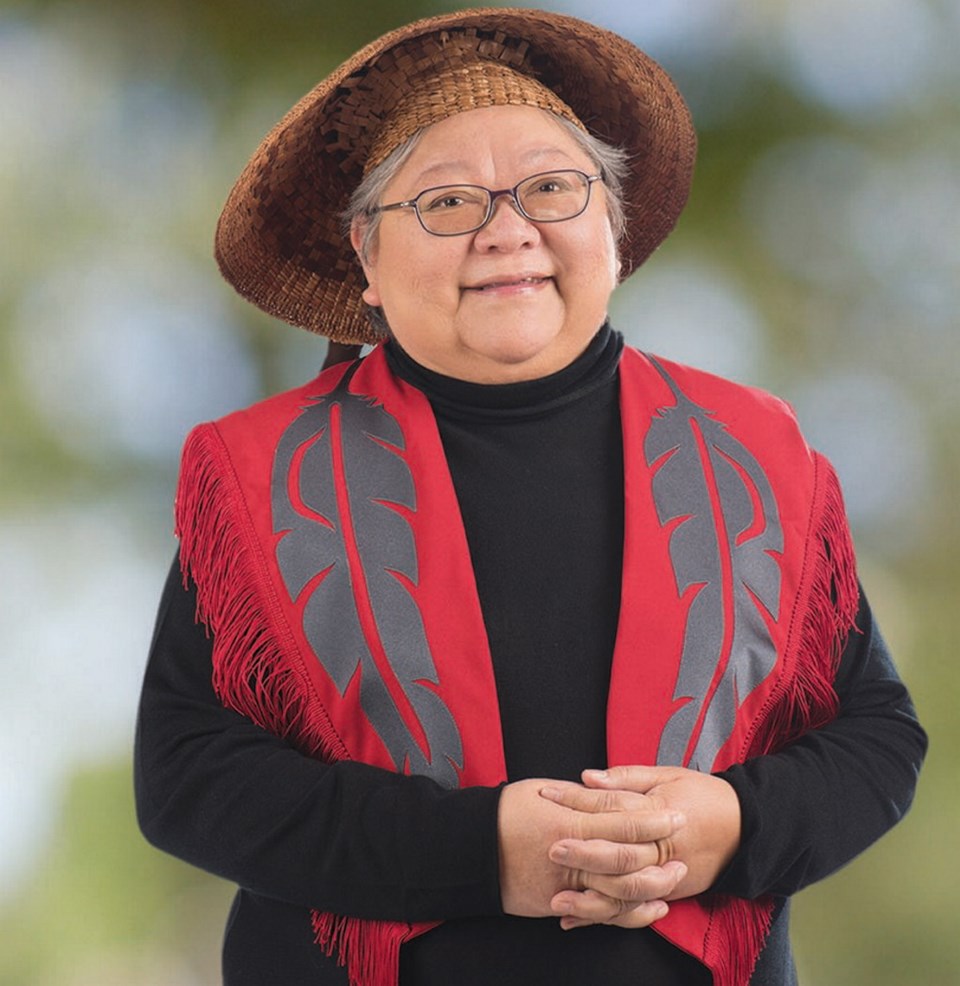Indigenous languages are the best way to learn about Canada and the people who first called the country home, say UVic Indigenous language specialists.
“Indigenous people of this land have been excluded from people really knowing us,” said Lorna Williams, professor emerita of Indigenous education at the University of Victoria. “The languages of Indigenous people have been silenced.
Williams will be part of a Thursday Ideafest event called Speaking the Land and will talk about the preservation, protection, resurgence and importance of Indigenous languages and their connections to the land and environment.
Introduced by UVic chancellor and broadcast journalist Shelagh Rogers, the event will also feature language revitalizationist and educator Renee Sampson and UVic linguistics professor Leslie Saxon.
Saxon said a common feature of Indigenous languages is their deep connection to the land, its features and the environment.
“Each Indigenous language is really rooted in place,” she said. “So when a person or a community has their language taken from them, it also breaks their connection with the land.”
Saxon said she has heard from Indigenous people about how transformational it can be to learn their language after growing up speaking the language of a colonizer. It strengthens their sense of identity and groundedness.
“That word ‘grounded’ is not an accident,” said Saxon.
She said it can be instructive for all Canadians to appreciate and respect Indigenous connections to the land, and they can start by learning the original Indigenous names for specific places.
Mount Douglas, for example, is P’KOLS. Nanaimo is an interpretation of the word Snuneymuxw. Saanich is an Indigenous word.
“It is significant when a place is called by the name that belongs to it,” said Saxon. “The language of a place teaches us about that place.”
Learning a greeting shared by Indigenous people of a particular place will work wonders in boosting common understanding, said Williams.
For example, she said, her people, the Li,’watul near Whistler, don’t have a separate word for “hello.”
What they have is a greeting written as “Kalh wa7 acw,” which roughly translates to: “Your presence is here in a good way.”
“If you can really learn how people greet each other, it opens the eyes,” said Williams.
Speaking the Land is set for Thursday from 7 p.m. to 9 p.m. at the Belfry Theatre, 1291 Gladstone Ave. The event is free, but requires a ticket. Go to uvic.ca/ideafest2020 to find the event and how to obtain a ticket. Rush tickets will available beginning at 6:45 p.m.



